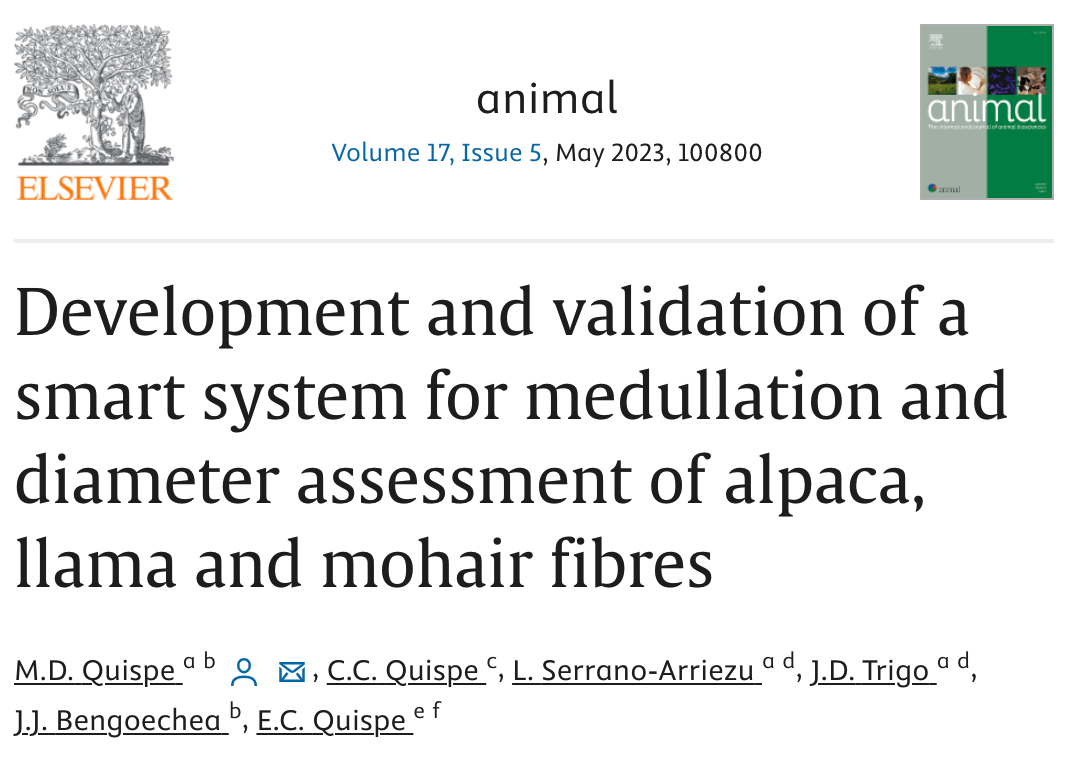
ABSTRACT
Medullated fibres, due to their higher resistance to bending and pressure, constitute a problem for the textile industry. Thus, having practical instruments to identify them is essential. Therefore, the aim of this research was to develop and validate a novel, swift, automatic system (referred to as S-Fiber Med) for medullation and diameter assessment of animal fibres based on artificial intelligence. The medullation of 88 samples of alpaca, llama and mohair fibres (41, 43 and 4, respectively) was evaluated. Additionally, 269 samples of alpacas were considered for average fibre diameter (AFD) and the results were compared with the Portable Fiber Tester (PFT) and Optical Fibre Diameter Analyser (OFDA) methods (72 and 197 samples, respectively). The preparation of each sample to be analysed followed the procedure described in IWTO-8-2011. Version 5 of ‘‘You Only Look Once” and DenseNet models were used to recognise the type of medullation and diameter of the fibres, respectively. Within each image (n = 661 for alpaca), all fibres were labelled (as Non-Medullated, Fragmented Medulla, Uncontinuous Medulla, Continuous Medulla and Strongly Medullated) using the LabelImg tool. Data augmentation technique was applied to obtain 3 966 images. Such data set was divided into 3 576 and 390 images for training and test data, respectively. For mohair samples (n = 321), a similar process was carried out. The data to train the model used to infer the diameter contained 16 446 fibres labelled with his respective AFD.
A complementary hardware composed of three subsystems (mechanical, electronic, and optical) was developed for evaluation purposes. T-test, Pearson and Concordance correlation, Bland-Altman plot and linear regression analyses were used to validate and compare the S-Fiber Med with other methods. Results indicate that there was no significant difference between medullation percentage obtained with the projection microscope and the S-Fiber Med. The Pearson and Concordance correlation analysis shows a strong, high and significant relationship (P-value < 0.001). The AFDs of alpaca and llama fibre samples obtained with the two methods are very similar, because no significant difference was found at the t-test (P-value > 0.172), and they have a strong, high and significant relationship between them, given the high Pearson correlation value (r 0.96 with P-value < 0.001), high Concordance coefficient and bias correction factor. Similar results were found when PFT and OFDA100 were compared with S-Fiber Med. As a conclusion, this new system provides precise, accurate measurements of medullation and AFD in an
expeditious fashion (40 seconds/sample).
Keywords: Artificial intelligence, Camelids, Fibre medullation, Hardware, Software.
DOI: https://doi.org/10.1016/j.animal.2023.100800
